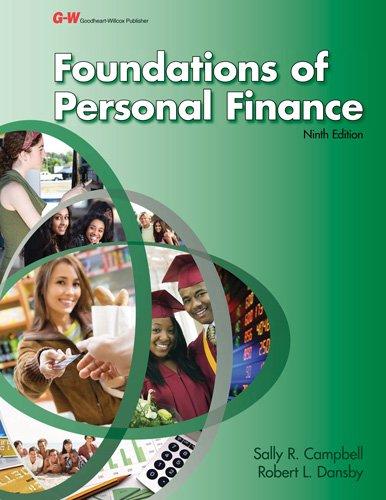Answered step by step
Verified Expert Solution
Question
1 Approved Answer
Assuming you are choosing between an A-share open ended fund , a no-load open-ended fund , and an ETF that invests solely in domestic equity
- Assuming you are choosing between an A-share open ended fund, a no-load open-ended fund, and an ETF that invests solely in domestic equity and has the same investment objective (choose Small Cap Growthwith at least a 5-year track record), explain the differences with regard to the following:
- Associated costs sales commissions and expense ratios
- What are differences in selling commissions and embedded expense ratios?
- Which will incur unseen transaction costsand how can we use the turnover ratio to gauge such? What are tax implications of higher/lower turnover.
- Active or passive management, and income orientation, of the securities held in the fund
- Which can be more efficiently monitored and managed for taxable capital gains?
- Relative to a typical Large Cap Value fund, the dividend payout of the securities in the fund, and thus the funds dividend yield?
- How the fund is priced (end of day, active trading)
- Which is priced at NAV and which trades on an open exchange? How does this effect the timing and pricing of buying/selling an ETF vs. open-ended MF?
- How might you benchmark (S&P 500, Russell 2000, etc..) the performance of your Small Cap Growth choices? Why is your chosen benchmark appropriate, considering your funds average market capitalization, sector concentrations, and growth/value orientation? Do you see a noticeable difference in YTD, 1, 3, and 5-year annualized performance (net of fees)? Given their different load and internal cost structures, why might there be any difference?
Step by Step Solution
There are 3 Steps involved in it
Step: 1

Get Instant Access to Expert-Tailored Solutions
See step-by-step solutions with expert insights and AI powered tools for academic success
Step: 2

Step: 3

Ace Your Homework with AI
Get the answers you need in no time with our AI-driven, step-by-step assistance
Get Started


